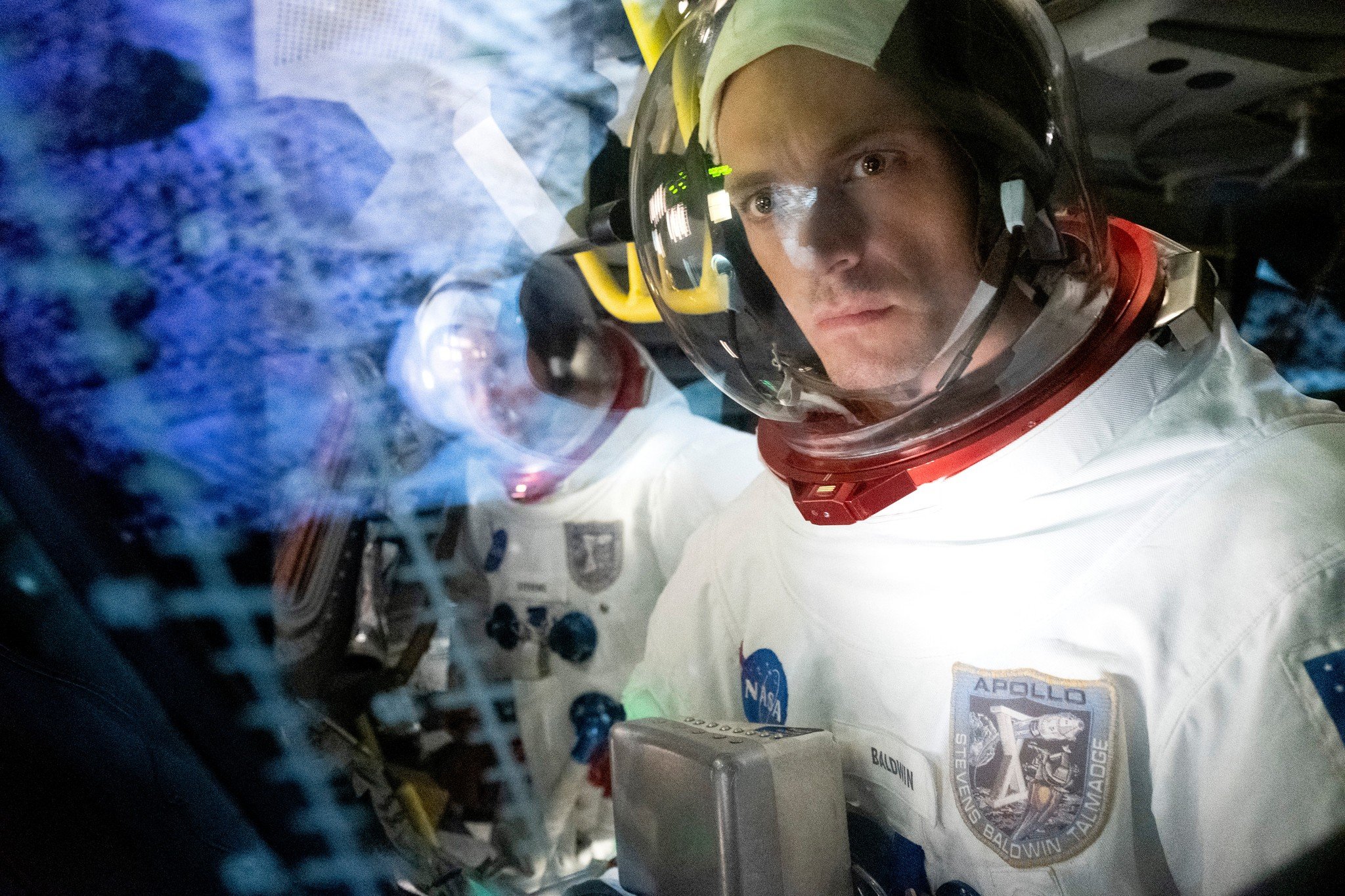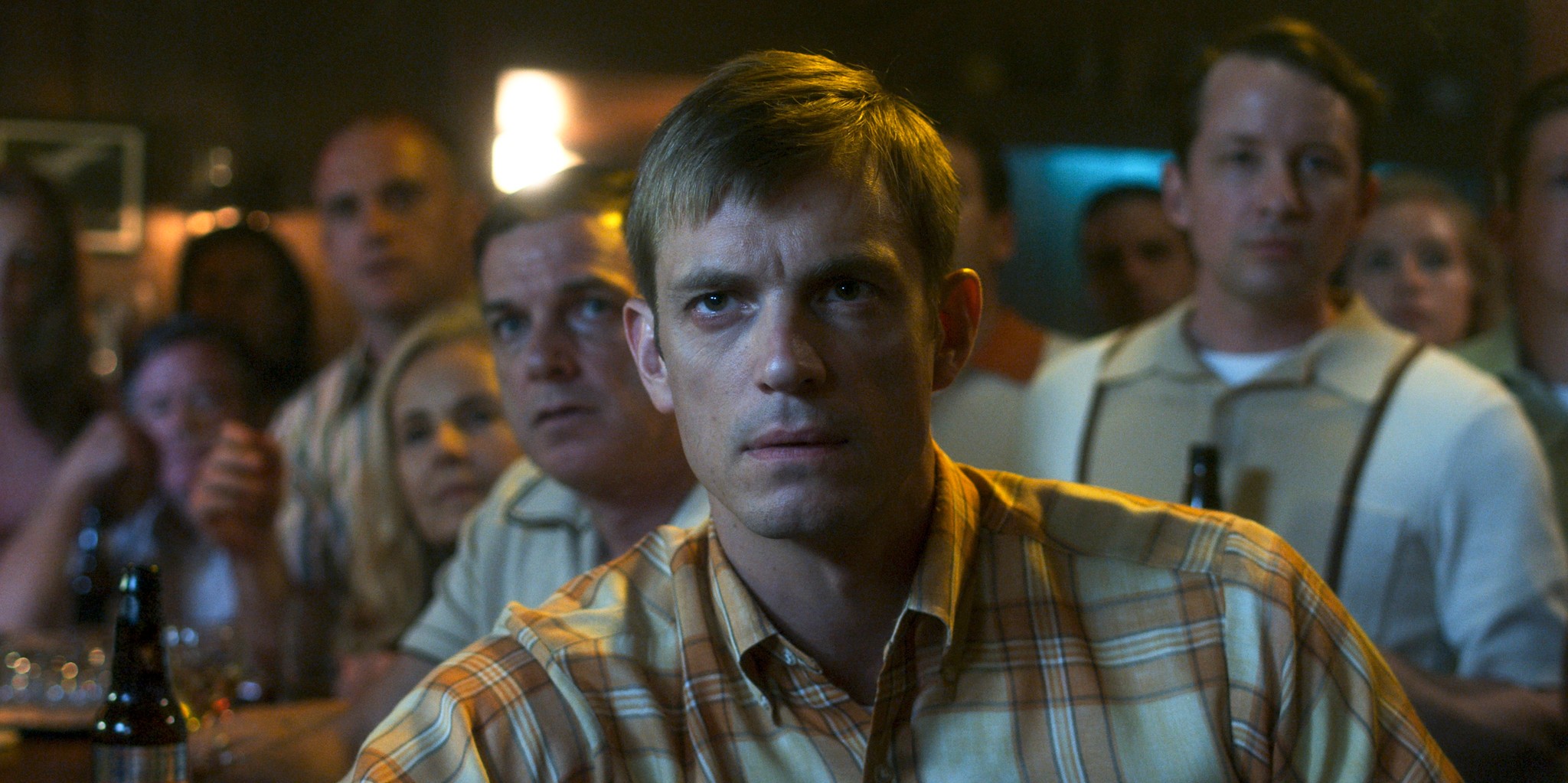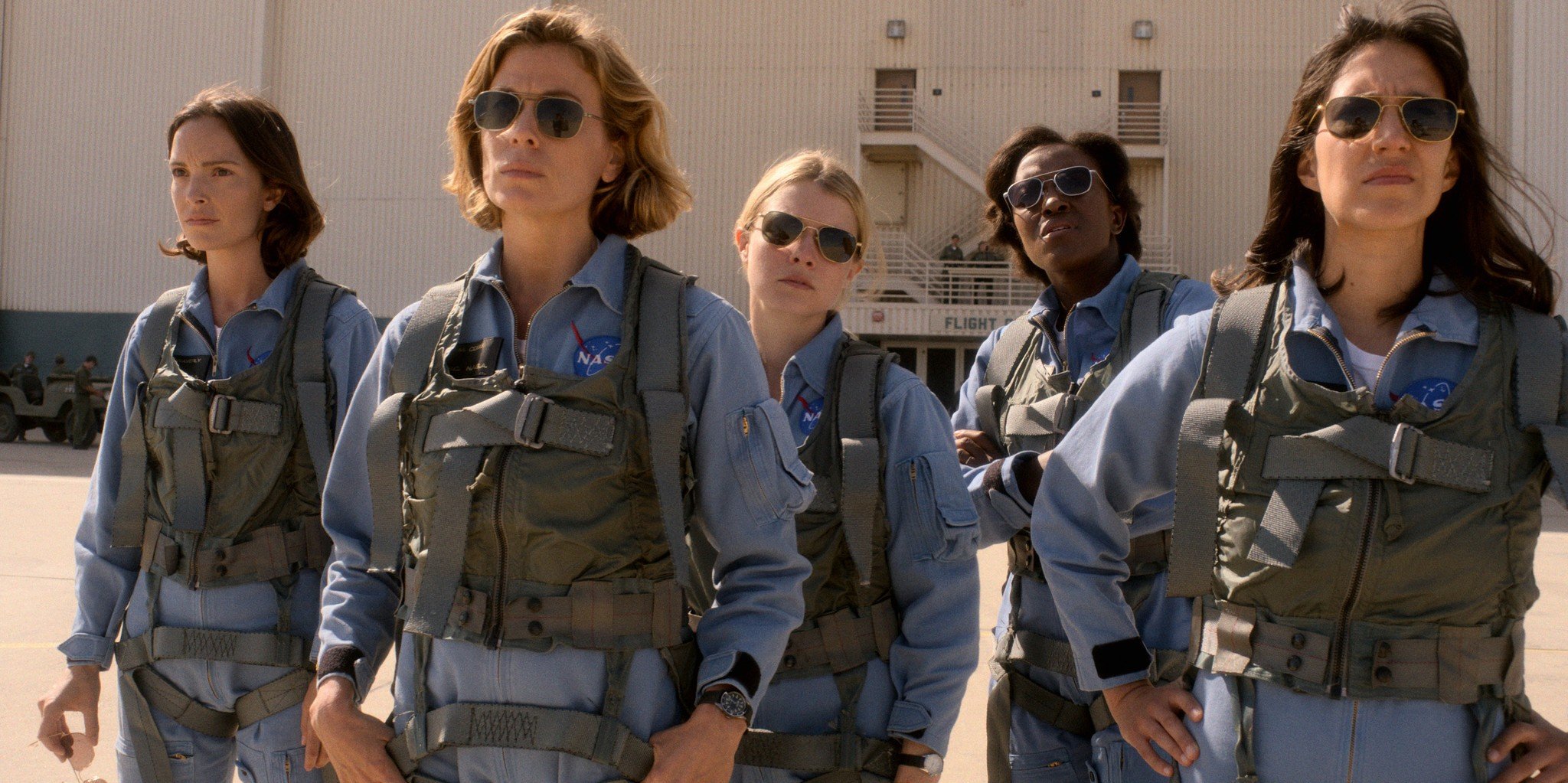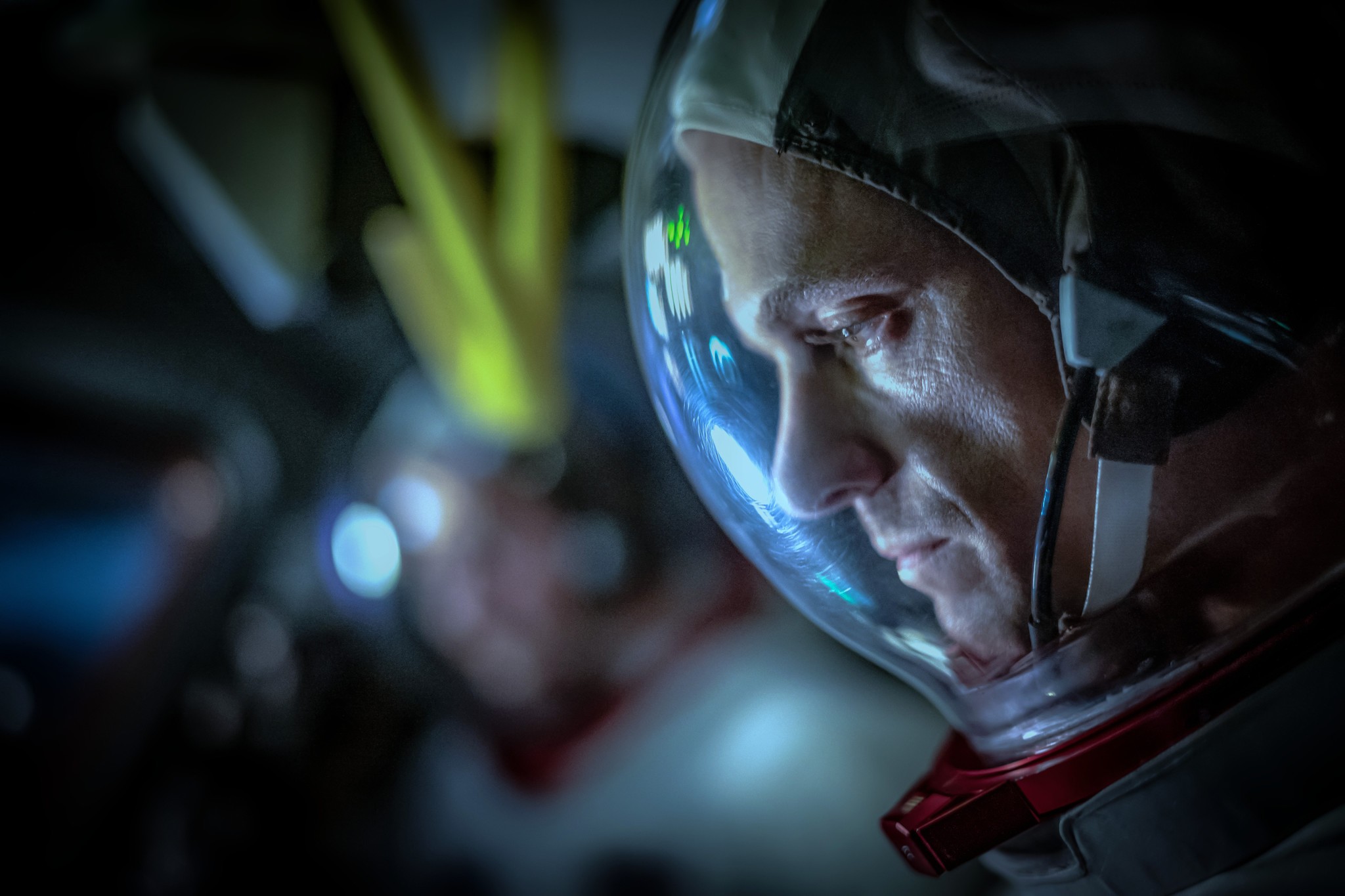For All Mankind is one of the first flagship shows from Apple TV+. Created by Ronald D. Moore (Battlestar Galactica, Outlander), Matt Wolpert and Ben Nedivi (Fargo), the show imagines a world in which the USSR, and not the U.S.A., was the first to land on the Moon. The show speculates on how that one event might have impacted NASA and the U.S. at large.
The race, spurred by the Russian victory in that leg of the space race, is the launchpad for an interesting dive into how human space exploration could have unfolded with a cast of fascinating characters who are ultimately the heart of this first season.
Spoiler Warning: Beyond this point, I will provide some details of the show's first three episodes. Although I will attempt to avoid any significant spoilers as best as I can, there will be certain plot points and surprises that I talk about. Tread forward with that in mind.
What For All Mankind is all about
In our world, humans first landed on the Moon on July 20, 1969, when Neil Armstrong and Buzz Aldrin touched down on the lunar surface. In the world of For All Mankind, cosmonauts of the Soviet Union beat them there by about a month. This causes turmoil within NASA and a darkening of the national mood. Hearings are called, angry calls from President Nixon fielded, and the entire lunar program is put in jeopardy.
When the U.S. makes its scheduled landing on the Moon, the program and space in general truly open up as fronts in the ongoing Cold War. The series focuses on a number of characters as they deal with the new pressures brought on by a constant game of oneupmanship with the Russians.
A slow burn of an opening helps establish the world
The first two episodes of the series, Red Moon and He Built the Saturn V, really serve as a kind of singular piece. While the show bops back and forth between a number of different characters, the primary focus for the first two outings is on Joel Kinnaman's (The Killing, Robocop) Ed Baldwin, the fictional commander of Apollo 10, the last mission before Americans landed on the moon.
The first two episodes move a little slowly but provide necessary table setting for what's to come.
This is a fairly smart choice. While following Baldwin's frustration at his own choice not to push for an early Moon landing in Apollo 10 is good for a couple of episode, and helps ground the new realities of this altered world in solid character drama, this early focus allows Ed Baldwin to take a bit of a back seat in the third episode as we transition to a NASA increasingly divergent from our own.
iMore offers spot-on advice and guidance from our team of experts, with decades of Apple device experience to lean on. Learn more with iMore!
The premiere episode, Red Moon serves as our launch point. The world watches as the Russians land on the Moon ahead of the U.S. landing. As President Nixon considers shuttering the lunar program now that the Russians have won, NASA tries to rally to complete preparations for Apollo 11, in which Neil Armstrong and Buzz Aldrin will be the first Americans on the moon.
Meanwhile, Ed Baldwin is dealing with more personal frustrations. As the commander of Apollo 10, the previous mission, Baldwin feels like he had a chance to be the first man on the moon, and feels guilty that he didn't push for the landing, even though that was never in his mission plan. Public comments he makes about this, as well as the state of NASA, cause him to be taken off Apollo 15, where he would have landed on the moon.
The second episode, He Built the Saturn V, still keeps a lot of focus on Ed as he learns from his mistakes and adjusts to his new role at NASA, while also focusing on Wernher von Braun. Von Braun, considered to be the pioneer behind many early American advancements in spaceflight, serves as the director of the Marshall Space Flight Center. When he opposes President Nixon's plans to put a permanent military base on the Moon, he finds himself in the crosshairs of the President and his allies in Congress.
Both episodes do a good job of establishing much of the world as our point-of-view characters have known it, while also laying the groundwork for everything that's about to change. Tied together by the American Moon landing, these two episodes present us with the stakes, while continually dropping some hints as to where the show wants to go. At over an hour each, they feel a little burdensome, but the table setting feels necessary for what's to come.
Nixon's Women is where the action really kicks off
For All Mankind really gets going with Nixon's Women, the third episode of the series. After the USSR lands a woman on the Moon, the Nixon administration pushes NASA to find a female astronaut they can land on the Moon, too. The big problem here, of course, is that at this time, NASA isn't training any women in the astronaut program.
While some of the NASA bigwigs push back against the administration's initiatives, they eventually relent, selecting about 20 candidates, including participants in the Mercury 13 program, as well as Tracey Stevens, a pilot and the wife of Ed Baldwin's friend Gordo, who served as the LEM pilot for Apollo 10. This episode primarily follows Tracey and her struggles with the program as well as her own expectations for herself.
Sarah Jones does a good job portraying a woman who pursues her dream while dealing with a lot of self-doubts.
We also meet the outwardly abrasive Molly Cobb, a Mercury 13 candidate who doesn't play well with others. Seemingly based on the late Geraldyn M. "Jerrie" Cobb, Molly clashes often with Tracey, taking shots at her for being a housewife, as well as her belief that Tracey is only in the program because her husband is an astronaut.
The episode follows the women through their long training process, weeding out several candidates along the way and culminating in two tests: a desert survival exercise, as well as a piloting test that takes place in a lunar module-style vehicle. I won't say any more about it here.
With a fairly singular focus on the training of NASA's first female astronauts, Nixon's Women is a tighter episode than either of the first two. It retains the 60+ minute runtime of the previous entries, but the focus keeps it from feeling too heavy like the first two could be in places.
Character is what it's all about
As fun as it is to watch a speculative space race, and it is, no doubt about it, it would ultimately fall flat if not for the characters. Luckily, while For All Mankind plays with some familiar tropes, each of the characters that we spend significant time with feels well-rounded, with their own voices, though in the initial outing, the actors still seem to be working their way through the characters. Two in particular that come into focus, our protagonists for the first three episodes, are Ed Baldwin and Tracey Stevens.
Ed Baldwin is probably the correct choice for a central character for the first two episodes of the season. Played by the talented Joel Kinneman, Ed is the sort of stoic figure you might expect to find in a story about astronauts. His coming to grips over his guilt for what he sees as losing the Moon race for the U.S. provides a solid through-line to hold on to as the world around him changes from the familiar into a new, unexplored frontier.
Tracey Stevens serves as the protagonist of Nixon's Women, played by Sarah Jones (Alcatraz). A capable pilot in her own right, Tracey hasn't flown in a few years, having chosen to focus on being a mother while her husband, astronaut Gordo Stevens, went into space. But when NASA recruits her to join the astronaut program, Tracey is suddenly faced with a dream she didn't even know she had, becoming a reality.
Tracey has a kind of confidence that, while not exactly unearned, gets her into trouble as training goes on. Coming up against increasing challenges, you find yourself feeling for Tracey as her hopes of actually becoming an astronaut start to dwindle. Jones' portrayal of Tracey as someone who, while a loving wife and mother, desperately wants to pursue her own dream, really shines through in Nixon's Women.
I will say that overall, the acting in the series is solid, even if there haven't been any particularly standout performances just yet.
In which I speculate about the future
Running through every episode of For All Mankind so far is a subplot about Aleida Rosales. After the death of her mother, Aleida and her family cross the southern U.S. border into Texas, where Aleida's father Octavio gets a job as a NASA custodian. In that position, Octavio gathers scraps and pieces left about the space center in order to give them to his increasingly space-obsessed daughter.
Warning: I'm about to engage in some speculation about future plot lines. While this doesn't come from a place of knowledge about what's to come, some still might want to steer clear just in case it's right.
Right now, Aleida's plot isn't completely connected to the goings-on elsewhere in the show. And despite the fact that it's her father that works as a NASA custodian, this story is clearly about Aleida. Moore has previously talked about how this show hopes to offer a bolder, more energetic version of the space program than what was seen in reality, and it seems like Aleida is a part of that future.
As has been discussed elsewhere, there is, or at least was at some point, a seven-year plan for For All Mankind. Given that, in three episodes, we've covered more than two years, it seems likely that we're not sticking to 60s/70s-era NASA. I'd imagine that we'll go well into future decades and that Aleida will be a part of that. I'm not going to be shocked if and when we see an adult Aleida show up at NASA, either at Mission Control or in the astronaut program.
There's something that Gene Kranz, the NASA flight director played by Eric Laden, says in Red Moon as they prepare to launch Apollo 11:
[If] we put a man on the Moon today, I guarantee we are not stopping there. We're going to Mars, Saturn, the asteroids, the stars, deep space, the galaxy.
I can't help but think of this as a mission statement for the show itself. In fact, if Moore and company get to produce seven seasons of this show, that actually kind of maps to each season: Season 1 (Moon), Season 2 (Mars), Season 3 (Saturn), Season 4 (the Asteroid Belt), Season 5 (distant stars), Season 6 (deep space), Season 7 (the wider Milky Way). While I admit this could just be my imagination running a little wild, I can't help but see it as a possibility.
Final thoughts
It might start a little slow, but it doesn't take long for For All Mankind to really get into an exciting alternate reality. A lot of us are versed in the period of NASA history that the first season has explored so far, so it's great to see it from a completely different angle. Given the pedigree of the creative team (Battlestar Galactica remains one of my favorite shows to this day) and what we've seen so far, I'm in this one for the long haul.
There's yet to be a truly standout performance, but with just three episodes under their belts, the cast have all done solid work, and as each episode passes, you can feel them becoming more comfortable with their characters. I'm interested to see where they take these people next, a good sign for any show.
As For All Mankind continues to explore an altered history, I'll be watching each episode as they come out, waiting to see how the changes the show has made to our history play out in unexpected ways. The team behind the show has created a new world that feels at the same time both familiar and fascinatingly new, and I can't wait to see how the rest of this ride unfolds.
Joseph Keller is the former Editor in Chief of iMore. An Apple user for almost 20 years, he spends his time learning the ins and outs of iOS and macOS, always finding ways of getting the most out of his iPhone, iPad, Apple Watch, and Mac.






